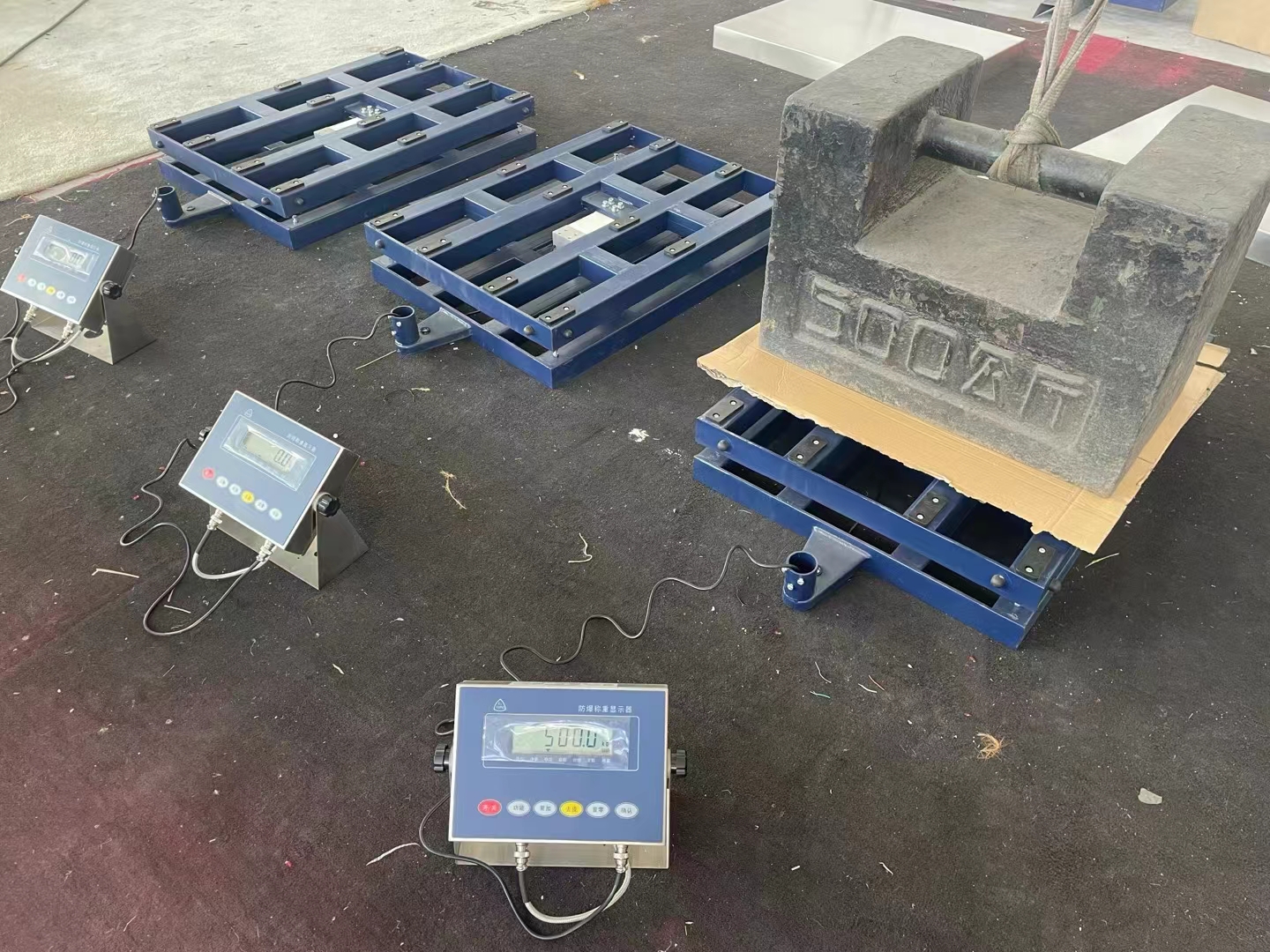Views: 7 Author: Site Editor Publish Time: 2024-08-29 Origin: Site

In the world of weighing equipment, bench scales offer ideal features that are adaptable to a wide range of applications.
But what exactly is a bench scale? Simply put, a bench scale is a versatile weighing instrument designed to measure the weight of objects placed on a bench or counter. These scales are compact, reliable, and essential for tasks that require precision in weight measurement. Additionally, bench scales can be paired with weighing indicators and an optional column to adjust the indicator height. To protect the load cell, an overload stop is built into the frame to ensure that the load cell is protected from overload. From laboratories to manufacturing floors, bench scales are indispensable tools that help maintain accuracy and efficiency in operations.
A bench scale typically consists of a weighing platform, a load cell, a display unit, and sometimes a built-in or external battery. The weighing platform is where the object to be measured is placed. Beneath this platform lies the load cell, which is the heart of the bench scale. The load cell detects the weight and converts it into an electrical signal. This signal is then transmitted to the display unit, which shows the weight in the desired unit of measurement.

Bench scales operate on the principle of strain gauge technology. When an object is placed on the platform, the load cell experiences strain, which causes a change in electrical resistance. This change is measured and converted into a weight reading, displayed on the screen. Modern bench scales often feature digital displays, making them user-friendly and easy to read.
Bench scales come in two main types: analog and digital. Analog bench scales use mechanical components to measure weight, while digital bench scales rely on electronic sensors. Digital scales are more common today due to their accuracy, ease of use, and additional features like automatic calibration and tare functions.
Depending on the application, bench scales can be categorized as heavy-duty or light-duty. Heavy-duty bench scales are built to withstand larger loads and are often used in industrial settings. Light-duty bench scales are more suitable for smaller, less demanding tasks, such as in laboratories or retail environments.
Portable bench scales are lightweight and easy to move, making them ideal for situations where mobility is required. These scales are often used in fieldwork or environments where space is limited.
One of the most critical aspects of a bench scale is its precision. Accurate weight measurements are crucial, especially in industries like pharmaceuticals, where even the slightest deviation can lead to significant consequences.
Bench scales are designed to be durable, often constructed from stainless steel or other robust materials to withstand harsh environments. This durability ensures long-term reliability, even with frequent use.
Modern bench scales come with various display options, including LCD, LED, and even touchscreens. These displays are designed to be clear and easy to read, ensuring that users can quickly obtain accurate weight measurements.

In manufacturing, bench scales are used to weigh raw materials, monitor production processes, and ensure consistency in product quality. They are essential for maintaining efficiency and reducing waste.
In retail settings, bench scales are often found at checkout counters, where they are used to weigh items like produce and bulk goods. Accurate measurements ensure that customers are charged correctly, and businesses maintain fair pricing practices.
Laboratories rely on bench scales for precise measurements of chemicals and other materials. These scales are vital for experiments, research, and quality control processes.
In the food industry, bench scales are used to portion ingredients, ensure consistency in recipes, and comply with food safety regulations. Accurate measurements are crucial for maintaining product quality and customer satisfaction.
Bench scales provide highly accurate measurements, which is essential in applications where precision is critical. This accuracy helps prevent errors and ensures consistency in products and processes.
Bench scales are versatile tools that can be used in various settings, from industrial environments to laboratories and retail stores. Their adaptability makes them valuable across multiple industries.
Many bench scales are portable and easy to use, making them convenient for tasks that require mobility or quick setup. Their user-friendly design ensures that even those with minimal training can operate them effectively.
Bench scales are often more affordable than other types of scales, making them a cost-effective solution for businesses that need reliable weighing equipment without breaking the bank.
When choosing a bench scale, it's essential to consider factors such as the scale's capacity, size, material, and the environment in which it will be used. For example, a scale used in a harsh industrial setting may require more robust construction than one used in a laboratory.
One common mistake is purchasing a scale that does not meet the required capacity, leading to inaccurate measurements or even damage to the scale. It's also crucial to ensure that the scale is compatible with the specific applications for which it will be used.

Proper installation is critical for accurate measurements. The scale should be placed on a stable, level surface, and the load cell should be free from obstructions that could interfere with its operation.
Regular calibration is essential to maintain the accuracy of a bench scale. Over time, factors such as wear and tear or environmental changes can affect the scale's performance, making routine calibration necessary to ensure continued precision.
Regular cleaning and care are vital for keeping bench scales in optimal condition. This includes wiping down the scale after use, checking for any signs of damage, and ensuring that the load cell is free from debris.
Common issues with bench scales may include inaccurate readings, display errors, or malfunctioning load cells. Troubleshooting these problems often involves checking connections, recalibrating the scale, or consulting the manufacturer's manual.
To extend the lifespan of your bench scale, it's essential to follow the manufacturer's maintenance guidelines, handle the scale with care, and avoid overloading it beyond its capacity.
Manufacturing industries use bench scales to weigh raw materials, monitor production processes, and ensure consistent product quality.
In retail, bench scales are essential for accurately weighing products, ensuring fair pricing, and maintaining customer trust.
Laboratories rely on bench scales for precise measurements in experiments, research, and quality control processes.
In food processing, bench scales are used to portion ingredients, maintain consistency in recipes, and comply with food safety regulations.
Bench scales are typically smaller and more portable than floor scales, making them ideal for tasks that require quick, accurate measurements on a countertop or bench. Floor scales, on the other hand, are designed for weighing larger, heavier items and are often used in industrial settings.
Choosing between a bench scale and a floor scale depends on your specific weighing needs and the environment in which the scale will be used. Here are some key considerations for when a bench scale might be the better option:
Bench scales are typically designed for lighter loads, usually up to a few hundred kilograms or less. If your weighing tasks involve smaller, more manageable items, a bench scale is ideal. On the other hand, floor scales are designed for heavier loads, often used in industrial settings to weigh large pallets or bulky items.
If you’re working in a confined space, such as a laboratory, small workshop, or retail environment, a bench scale is more appropriate. They are compact and can easily fit on countertops or workbenches without taking up much room. Floor scales, being larger, require more space and are better suited to warehouse or factory floors.
Bench scales are known for their precision, making them suitable for tasks that require highly accurate measurements. For example, in a laboratory setting where small quantities of materials need to be measured with great accuracy, a bench scale is the preferred choice. Floor scales, while also accurate, are generally used for less precise measurements of larger items.
If you need a scale that can be easily moved from one location to another, a bench scale is more convenient. Many bench scales are designed to be portable, with handles or lightweight construction that allows for easy transport. Floor scales are typically stationary and more challenging to move once installed.
If cost is a significant factor, bench scales tend to be more affordable than floor scales. They offer a cost-effective solution for businesses that need reliable weighing equipment without the higher price tag associated with larger, heavy-duty scales. If you want to know the wholesale price of bench scales and floor scales, please do not hesitate to contact us.
Recent advancements in bench scale technology include improved load cell designs, digital connectivity options, and enhanced durability for harsh environments. These innovations are making bench scales more reliable and user-friendly than ever before.
The future of bench scales looks promising, with ongoing developments in smart technology, wireless capabilities, and integration with other digital systems. These advancements will likely continue to enhance the functionality and efficiency of bench scales in various industries.
Bench scales are essential tools in many industries, providing accurate, reliable, and versatile weighing solutions. Whether used in manufacturing, retail, laboratories, or food processing, bench scales play a crucial role in ensuring precision and efficiency. By understanding the different types, key features, and applications of bench scales, businesses can choose the right scale for their needs and maintain it for long-term success.
Bench scales are typically smaller and more portable than other scales, making them ideal for tasks that require quick, accurate measurements on a countertop or bench.
Common mistakes include overloading the scale, neglecting regular calibration, and improper installation, all of which can lead to inaccurate measurements.
Yes, many bench scales are certified for legal trade, but it's important to check the certification before using them for commercial transactions.
Regular calibration checks, following the manufacturer's guidelines, and using calibration weights can help ensure your bench scale is calibrated correctly.
Some well-known brands include Mettler Toledo, QC Weighing and Adam Equipment, known for their reliability and precision in bench scales.